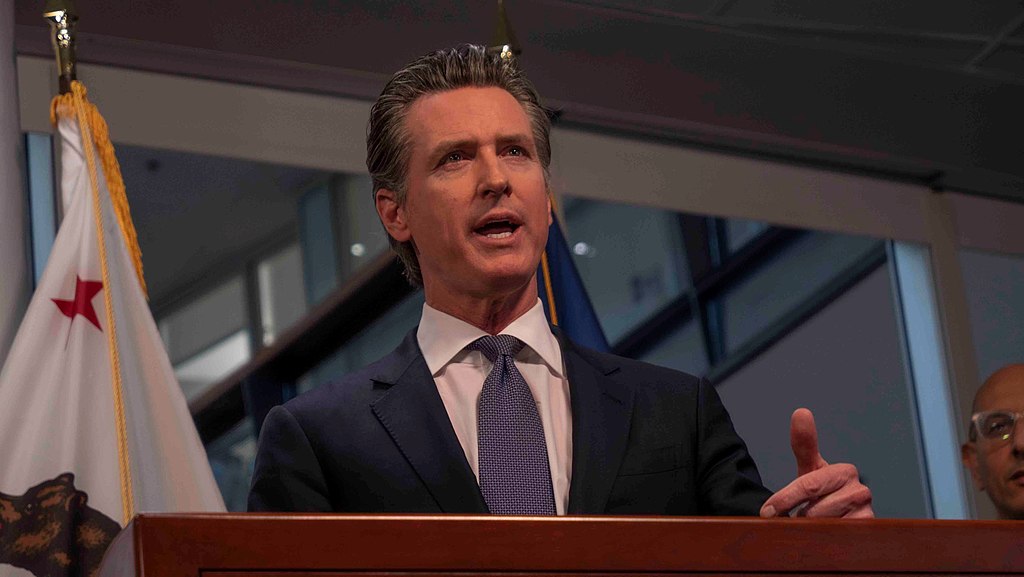In recent years, the city of Long Beach, California has seen a marked increase in homelessness, with the most recent count in 2023 indicating a population of 3,447 individuals living without permanent shelter. This rise, a 4.6% increase from the previous year, is part of a larger trend witnessed since 2020 where homelessness in the city surged by 62%. Amidst this growing crisis, a significant portion of the homeless population struggles with severe mental illness or substance abuse issues, underscoring the imperative for a more holistic approach to treatment and support.
Against this backdrop, the State of California has enacted new legislation aimed at overhauling the mental health system through medical intervention. Spearheaded by Governor Gavin Newsom, the legislation expands the criteria for involuntary medical treatment to encompass individuals whose mental health or substance abuse issues impede their ability to ensure personal safety. This expansion is encapsulated in Senate Bill 43, which marks a significant departure from the erstwhile conservatorship laws, broadening the scope of involuntary medical treatment.
Central to this legislative reform is the revision of the Lanterman-Petris-Short Act, a longstanding mental health law governing involuntary civil commitment in the state. The revised legislation is anticipated to result in an increased number of individuals being placed in treatment facilities against their will, a move seen by advocates as a necessary step in addressing the mental health crisis engulfing the state.

Opinions on Senate Bill 43
The legislative efforts, particularly Senate Bill 43, to tackle the mental health crisis have garnered a variety of responses from different stakeholders, reflecting the complexity and sensitivity of the issues it seeks to address.
Support for SB 43:
Mayor Todd Gloria, representing the California Big City Mayors, testified in support of SB 43 before the state Senate’s Judiciary Committee. He emphasized the need to reform outdated conservatorship laws to better address the contemporary challenges associated with mental health and substance abuse, especially among the homeless population(Times of San Diego).
Proponents argue that the legislation is critical as it updates the criteria for determining if a person is “gravely disabled,” which is the standard for LPS conservatorship eligibility. They believe that the current focus of the LPS Act on the ability to provide for one’s food, clothing, and shelter is outdated, and that SB 43’s broader criteria will better serve individuals in need of intervention (California State Senate).
Opposition to SB 43:
Human Rights Watch (HRW) expressed strong opposition to SB 43, voicing concerns that it expands the definition of “gravely disabled,” thereby increasing the number and categories of people eligible for involuntary hospitalization and conservatorship. HRW urges for a more holistic, rights-respecting approach to address the lack of resources for autonomy-affirming treatment options and affordable housing. They argue that SB 43 doesn’t propose workable solutions or address the structural causes of homelessness, and instead expands the circumstances under which individuals can be deprived of their autonomy and liberty (Human Rights Watch).
A rebuttal from Highlander News suggests that SB 43 will not provide the much-needed boon to address the issues at hand. The article mentions that the legislation, which significantly alters the Lanterman-Petris-Short Act, was critical in preventing the involuntary and indefinite commitment of individuals by the state. The argument is that the LPS Act did not aim to end involuntary commitment or endanger public safety but rather to prevent inappropriate detainment (Highlander News).
These diverging viewpoints underscore the challenges and the high stakes involved in crafting legislation to address mental health, substance abuse, and homelessness issues in California, particularly in urban areas like Long Beach. As Long Beach grapples with these intertwined challenges, the discourse surrounding SB 43 showcases the broader societal dialogue on how to balance individual liberties with community safety and well-being in tackling the homelessness and mental health crises.
Furthermore, the establishment of Community Assistance, Recovery, and Empowerment (CARE) Courts represents another pivotal component of the state’s strategy to combat serious mental health issues among the unhoused population. The CARE Courts initiative permits close relatives, first responders, and behavioral health workers to petition for court-ordered treatment plans for individuals with untreated severe mental disorders. This initiative aligns with the broader objective of providing robust support and treatment for those grappling with mental health issues, thereby addressing one of the root causes of homelessness.
In addition to these legislative measures, a proposal for a $6.4 billion bond to fund 10,000 new treatment beds and supportive housing is on the horizon. This proposition, awaiting voter approval, underscores the state’s concerted effort to tackle the homelessness crisis from multiple fronts – from providing immediate shelter to addressing the underlying mental health and substance abuse issues plaguing many within the homeless community.
Funding in Long Beach
- Increased Shelter Capacity: Since 2020, Long Beach has markedly augmented the number of locally funded interim beds from 60 to 520. Additionally, 317 non-congregate interim housing beds have been added via Project Homekey and other grant programs, alongside 125 new congregate interim housing beds through the Atlantic Farms Bridge Housing Community. The city also announced plans for a new temporary emergency shelter, providing over 85 beds and various amenities through July 28, 2023. These shelters not only provide a safe haven but also link individuals to housing options as they become available, with supportive services to expedite the transition into permanent housing.
- Motel Shelters and Tiny Homes: From January 2022, the city has been sheltering approximately 57 individuals per night in motels. In a notable move, the city acquired the 78-bed Luxury Inn, slated to open by year-end. Moreover, plans are in motion to develop 33 new modular non-congregate shelter units, known as Tiny Homes, to provide safe housing for those experiencing homelessness. These initiatives underscore Long Beach’s commitment to exploring new avenues for both interim and permanent housing.
- Affordable Housing Developments: The Development Services Department, along with The Long Beach Community Investment Company, has been at the forefront of producing new affordable housing units with supportive services for individuals facing homelessness. Projects such as Spark at Midtown, Bloom at Magnolia, Vistas Del Puerto, and Las Ventanas have collectively added 121 units, with another 190 units in development and a proposal for an additional 156 units. Engaging local housing providers in meaningful discussions to devise creative strategies has been a core aspect of Long Beach’s approach to combating homelessness.
- Enhanced Outreach and Services: The outreach efforts have seen a substantial expansion, with the Health Department Outreach staff increasing from four individuals in 2020 to 18, with a total of 27 positions budgeted. The Homeless Services Bureau’s staff has also expanded from 25 to 90, and its budget has grown from $10 million to nearly $50 million in annual services, displaying a strong commitment towards creating long-term interim and permanent housing capacity. Furthermore, the Health Department secured $5.2 million to bolster the city’s rapid rehousing and permanent housing endeavors. The Housing Authority of the City of Long Beach has allocated a total of 582 Emergency Housing Vouchers to aid those experiencing or at risk of homelessness, showcasing a multi-pronged, coordinated approach to offer thoughtful and compassionate service-based solutions.
The unfolding narrative in Long Beach reflects a microcosm of the broader homelessness crisis across California, now intertwined with a state-wide legislative response aimed at alleviating the mental health crisis. As Long Beach and other Californian cities grapple with these intertwined challenges, the new legislation tackles a new mental health infrastructure. Some believe it can potentially pave the way towards reducing homelessness and creating a safer, more inclusive community for all residents. However, others believe it may be another misguided attempt to solving the issue of homelessness without addressing the causes like education, unemployment, and inflation.








